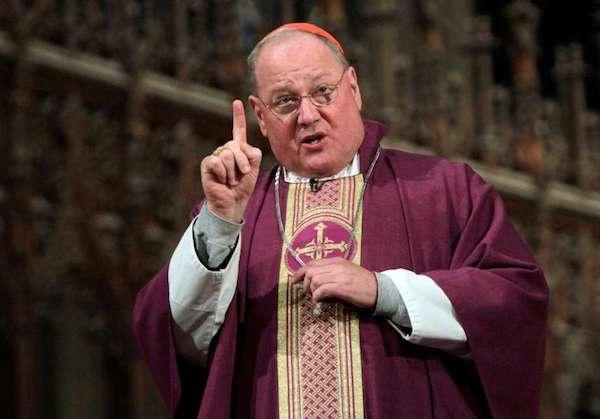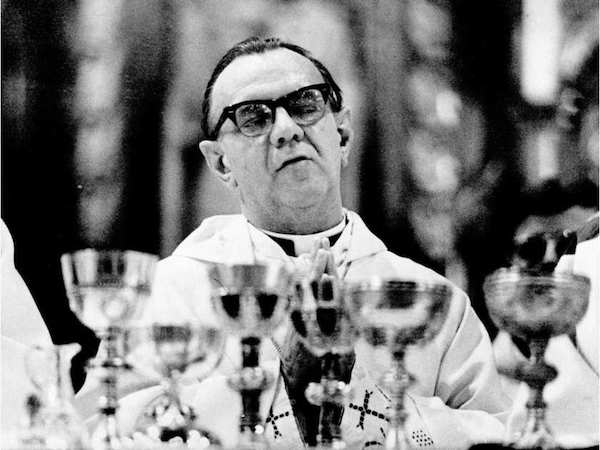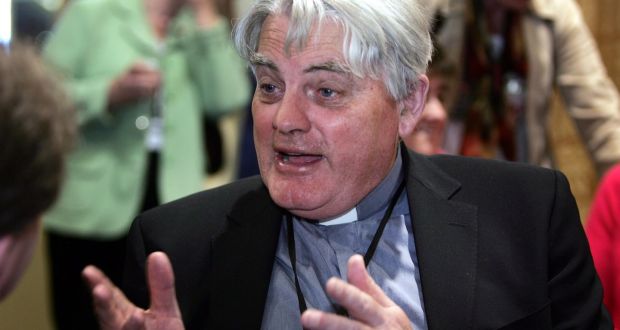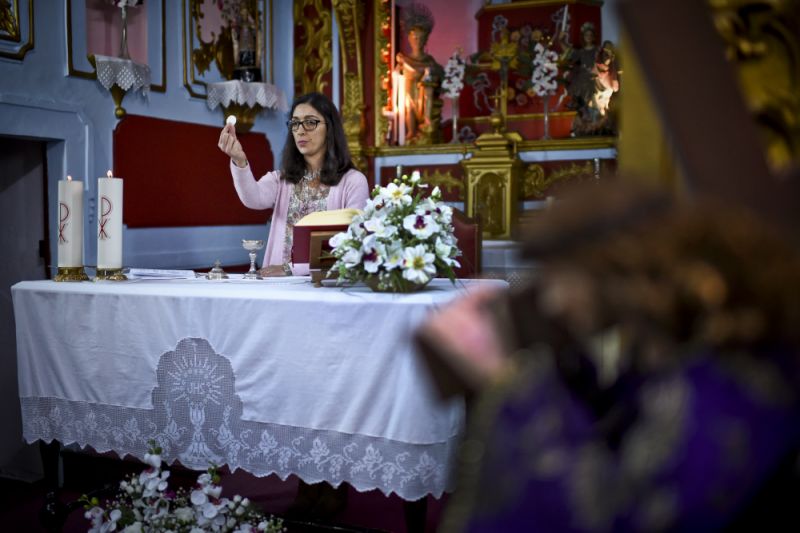
Abigail Eltzroth was ordained Sunday in Asheville by the Association of Roman Catholic Women Priests.
An international group defiantly opposed to the Roman Catholic Church’s ban on women priests Sunday ordained its first woman Catholic priest in the 46 counties that make up the Catholic Diocese of Charlotte.
The ordination ceremony for Abigail Eltzroth happened in Asheville at Jubilee! – a nondenominational faith community – with Bishop Bridget Mary Meehan presiding.
Eltzroth, 64, said she is the second woman in North Carolina ordained by the rebel group, called the Association of Roman Catholic Women Priests.
“It’s time for a change and we’re in the forefront, leading the charge,” Eltzroth told the Observer on Sunday. “We expect that eventually everybody is going to follow us.”
Eltzroth said, she now plans to to start a Catholic worship community in the Asheville area.
But reached for comment Sunday, David Hains, spokesman for the Catholic Diocese of Charlotte, said: “I hope that Catholics in the diocese will understand that it would be sinful to receive a fake sacrament from a woman priest and that includes attending a fake Mass.”
According to a news release about the Sunday ordination from the Association of Roman Catholic Women Priests, 250 women in 10 countries have been ordained as Catholic priests. In the United States, it said, women priests serve in 65 “inclusive churches.” That includes women priests affiliated with the association and with a second allied group – Roman Catholic Women Priests – that has the same mission.
Several major Protestant denominations have women clergy, including the Episcopalians, Lutherans, United Methodists and Presbyterians. And most American Catholics say they’d like their church to ordain women, too. A Pew Research Poll in 2015 found that about six in 10 American Catholics said they favored allowing women to be Catholic priests.
But the Roman Catholic Church hierarchy has stood by its longtime prohibition against women becoming priests.
Not only that. In 2007, the Vatican’s Congregation for the Doctrine of the Faith, with the blessing of then-Pope Benedict XVI, decreed automatic excommunication against anyone “who attempts to confer a sacred order on a woman, and the woman who attempts to receive a sacred order.”
Excommunication means the person cannot receive the sacraments or participate in the liturgy unless he or she repents.
Citing Jesus
Pope Francis, who has proven to be more liberal than Pope Benedict on some issues, briefly raised hopes among Catholic reformers when he established a commission to study whether women could be ordained as deacons. Catholic deacons cannot celebrate Mass or hear confessions, but they do perform some priestly functions, including marrying couples, baptizing babies and others and giving homilies, or sermons, during Mass.
But, when asked last year about the prospect of female priests in the next few decades, Pope Francis said the church’s teaching banning women priests was likely to last forever.
He said Pope John Paul II had the “last word” on the issue – a reference to a 1994 apostolic letter that said ordaining women was not possible because Jesus chose only men to be his 12 apostles.
But Bridget Mary Meehan, a Florida-based bishop with the Association of Roman Catholic Priests, pointed to Mary Magdalene, also a major disciple of Jesus in the Gospels.
“The risen Christ appeared first to Mary Magdalene, not to (apostle) Peter, and called on her to announce the good news of Christianity – the resurrection being the central message of Christianity,” Meehan said. “Mary Magdalene was the apostle to the apostles.”
The association also claims that their ordained women priests are true priests because a male Roman Catholic bishop, acting as a spiritual descendent of those first apostles, ordained their first women bishops.
On its web site, the group says that “we stand in the prophetic tradition of holy obedience to the Spirit who calls all people to discipleship. The movement began with the ordination of seven women on the Danube River in 2002. Today there are (250) women priests and 10 bishops worldwide.”
Catholic convert
Eltzroth, the woman who was ordained Sunday, grew up Presbyterian but became a Catholic in her 50s. “It’s the most ancient tradition,” she said of Catholicism. “It’s the tradition that we all look to. Everybody looks to what the pope and the Catholic leaders are doing.”
Her resume includes several pastoral jobs: jail chaplain in Saginaw, Mich.; pastoral associate on the Fort Peck Indian Reservation in Montana; and pastor to two churches in the sand hills of Nebraska.
Eltzroth, who is divorced, is the mother of two grown children.
She said she sent an invitation to her ordination to Bishop Peter Jugis, who heads the Catholic Diocese of Charlotte. She received no response.
Asked about Pope Francis, Eltzroth said, “He’s a great leader. I’m very pleased with his stands on social justice. I hope the same social justice will be brought not only to the civil world but to the the religious (Catholic) world, too.”
As for the threat of excommunication, Eltzroth said: “I’m sure that I will be (excommunicated) if I haven’t been already. But there are plenty of saints who have been excommunicated. So that’s not going to stop us.”
Complete Article HERE!




